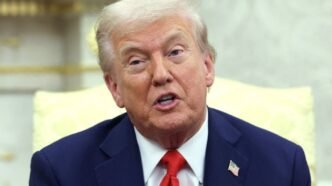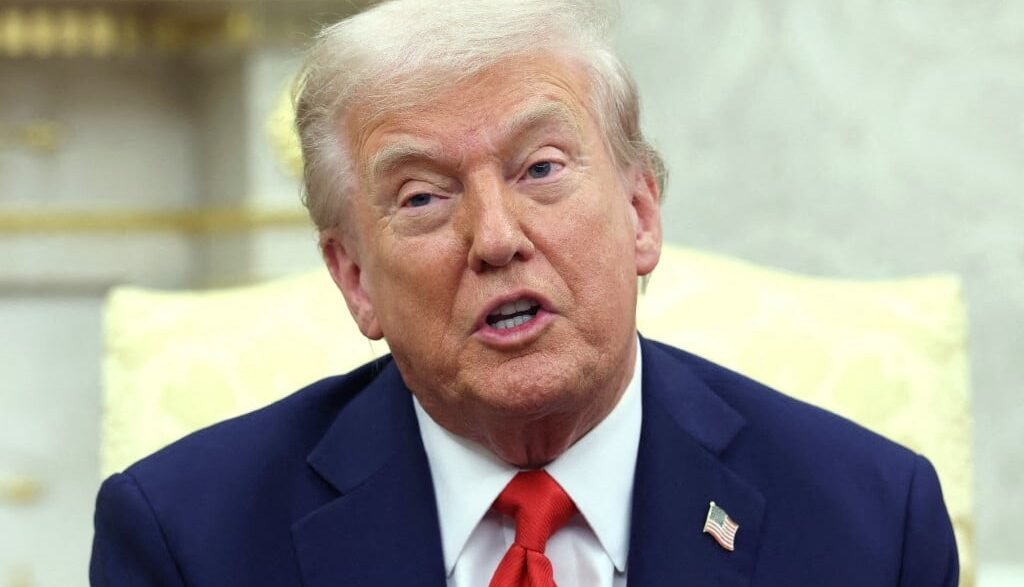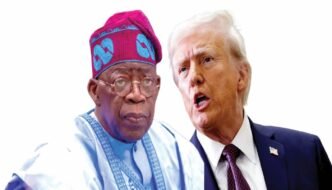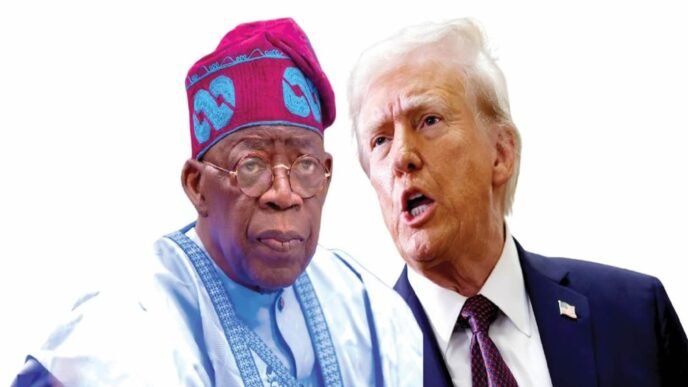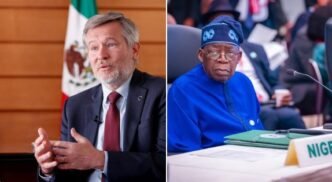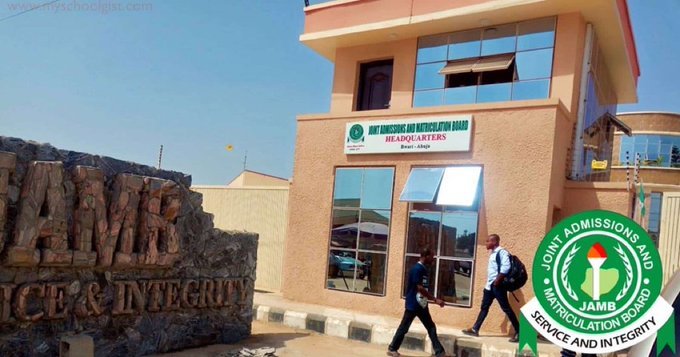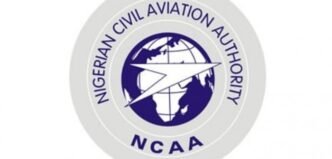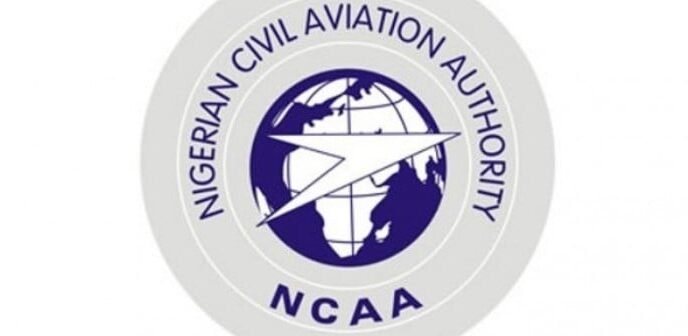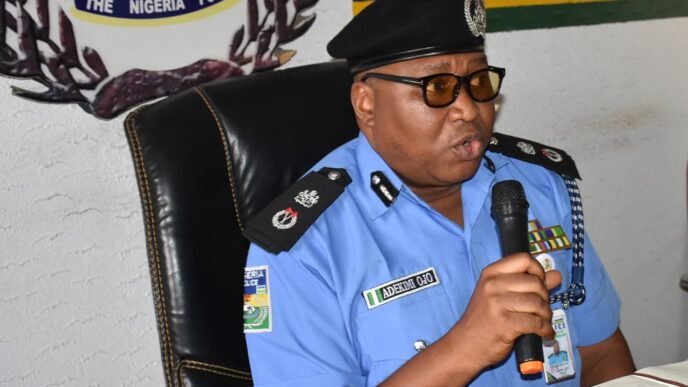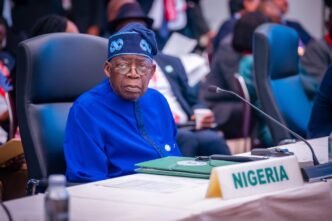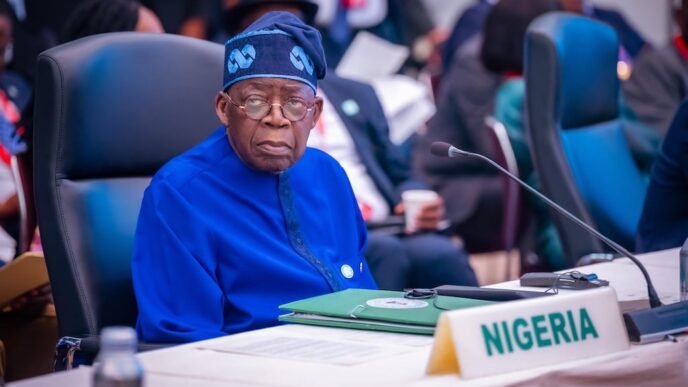November 2, 2025 | Abuja/Washington DC
The diplomatic relationship between the United States and Nigeria has entered one of its most tense moments in decades following a stark warning from U.S. President Donald J. Trump, who has threatened military action if the Nigerian government fails to stop what he described as the “targeted killings of Christians” in parts of the country.
In a statement shared on his official social media account late Saturday, President Trump declared that his administration “will not stand by while Christians are slaughtered in Nigeria,” adding that he had ordered the U.S. Department of Defense to “begin immediate preparations” for possible intervention.
The announcement has generated widespread international reactions, with analysts describing it as one of the most aggressive U.S. foreign policy statements toward an African nation in recent years.
Trump’s Statement and Policy Direction
President Trump, who returned to the White House earlier this year, accused the Nigerian government of “turning a blind eye” to widespread attacks on Christian communities. He claimed that despite years of international assistance and support, the situation had worsened, and that the United States would now consider “all necessary options,” including military involvement.
“The United States will not provide one more dollar in foreign aid to Nigeria until the killings of innocent Christians stop. If Nigeria’s leaders will not protect their people, we will act,” Trump said.
He further directed the U.S. Secretary of War, Pete Hegseth, and other senior military officials to develop “an immediate response plan,” describing the situation as “a humanitarian and moral crisis.”
Trump’s warning followed the U.S. government’s decision to designate Nigeria as a ‘Country of Particular Concern’ (CPC) under the International Religious Freedom Act. The designation allows Washington to impose sanctions, restrict aid, or take other punitive actions against governments accused of violating religious freedoms.
U.S. Rationale: Religious Freedom and Security
According to U.S. officials, the new classification reflects years of concerns raised by American lawmakers and religious rights organizations over recurring violence in parts of northern and central Nigeria.
The International Religious Freedom Office under the U.S. State Department has long cited “systematic, ongoing, and egregious violations” of religious liberty in Nigeria, pointing to attacks by Islamist militant groups, communal clashes, and inadequate government response.
Trump’s directive, however, goes further than previous administrations by linking the issue directly to U.S. national security and humanitarian interests.
A senior U.S. defense official, speaking anonymously, said Trump’s instruction to “prepare options” does not necessarily mean military deployment is imminent, but that the Pentagon has been tasked to “evaluate feasible interventions” should diplomacy fail.
“The President wants Nigeria to know that this is serious. The U.S. is ready to use both diplomatic and military leverage to prevent what it considers mass atrocities,” the official said.
Nigeria’s Response: “We Do Not Tolerate Religious Persecution”
The Nigerian government swiftly rejected Trump’s characterization, calling it “misinformed and unjustified.”
In a statement issued by Ajuri Ngelale, Special Adviser to President Bola Ahmed Tinubu on Media and Publicity, the Presidency described Trump’s comments as “unfortunate” and “a distortion of Nigeria’s complex security realities.”
“Nigeria does not tolerate religious persecution in any form. Our constitution guarantees freedom of worship and association for all citizens. The Nigerian government has consistently acted to protect lives, irrespective of religion or ethnicity,” the statement read.
The government emphasized that both Christians and Muslims have been victims of terrorism, banditry, and communal violence in various parts of the country.
“The violence in Nigeria is not a religious war. It is driven by terrorism, poverty, and historical grievances. To reduce it to a simple narrative of Christians versus Muslims is misleading,” the government added.
The statement also reaffirmed Nigeria’s commitment to working with international partners, including the United States, to combat terrorism and promote peace across the West African region.
Background: A Nation Under Siege
Nigeria has battled complex security crises for over a decade. The Boko Haram insurgency and its splinter group, ISWAP (Islamic State West Africa Province), have killed more than 70,000 people and displaced millions since 2009.
In central and northwestern states, armed bandit groups have carried out widespread kidnappings, extortion, and attacks on villages. Meanwhile, farmer-herder clashes in the Middle Belt have worsened due to competition over land, climate pressures, and ethnic tensions.
According to reports by local and international observers, many of these incidents have affected both Christian and Muslim communities, blurring the lines of purely religious conflict.
Security experts argue that while religion sometimes amplifies violence, the underlying causes are socio-economic and political. Weak governance, youth unemployment, porous borders, and a proliferation of small arms have turned parts of Nigeria into hotbeds of instability.
International Reactions and Diplomatic Fallout
Trump’s threat has drawn mixed reactions from global leaders and human rights advocates.
In Europe, officials from the European Union and the United Nations called for restraint and urged both countries to engage diplomatically rather than militarily. A UN spokesperson in New York said any foreign intervention must be guided by international law and the consent of the Nigerian government.
“Nigeria remains a sovereign nation. Any intervention must follow diplomatic channels and respect international norms,” the official stated.
Analysts at the Council on Foreign Relations described Trump’s comments as “a new low in U.S.–Africa diplomacy,” warning that such rhetoric could destabilize relations with other African nations wary of U.S. interference.
On the other hand, several Christian advocacy groups in the U.S. and Europe praised Trump’s stance, saying the world had long ignored the plight of persecuted Christians in Nigeria.
Domestic Reactions: Mixed Sentiments in Nigeria
Within Nigeria, Trump’s comments sparked intense debate. Some Christian organizations, such as the Christian Association of Nigeria (CAN), welcomed the international attention but urged caution.
“We appreciate global concern for the safety of Christians, but military intervention is not the solution,” a CAN spokesperson said. “Nigeria’s challenges require collaboration, not confrontation.”
Muslim groups, civil-society coalitions, and political commentators, however, condemned the remarks, calling them divisive and disrespectful to Nigeria’s sovereignty.
A political analyst, Dr. Aminu Bello, said Trump’s statement could inflame tensions within Nigeria and embolden extremist elements.
“When a foreign leader singles out one religious group as victims, it deepens suspicion and resentment. What Nigeria needs is international support for peacebuilding, not threats of war,” Bello said.
Legal and Strategic Considerations
Experts in international law have questioned the legality of Trump’s threat. Under both U.S. law and the United Nations Charter, unilateral military action against a sovereign nation is prohibited unless authorized by Congress or justified under self-defense — neither of which applies in this case.
Defense analysts also noted that a U.S. military operation in Nigeria would face logistical and diplomatic hurdles. Nigeria is a key partner in regional counterterrorism operations through the Multinational Joint Task Force (MNJTF), and any breakdown in relations could disrupt broader security cooperation in the Sahel and West Africa.
“Nigeria is not an enemy state. It is an ally in the fight against terrorism. A military strike would be both impractical and counterproductive,” said Dr. Charles Osei, an African security expert.
What Happens Next
Following Trump’s statement, the U.S. Department of State confirmed that diplomatic engagement with Nigerian officials is ongoing. It said Washington remains open to “constructive dialogue” while maintaining pressure for “meaningful protection of vulnerable communities.”
Meanwhile, the Nigerian government has summoned the U.S. ambassador in Abuja to seek clarification and reaffirm its commitment to religious freedom and security reforms.
Observers expect that both sides will pursue backchannel diplomacy to de-escalate the situation, though the rhetoric has already strained relations.
“This episode underscores how global politics and domestic insecurity can collide,” said Prof. Ifeoma Oduah, an international relations scholar. “Nigeria must strengthen its domestic stability to prevent external actors from exploiting its weaknesses.”
Conclusion
President Donald Trump’s warning to Nigeria marks an unprecedented chapter in U.S.–Africa relations, highlighting the growing intersection of religious freedom, security, and foreign policy.
While the alleged killings of Christians in some regions remain a grave concern, analysts agree that Nigeria’s insecurity is a multi-dimensional crisis rooted in governance, poverty, and inequality.
Both Washington and Abuja now face the challenge of navigating diplomacy over confrontation, ensuring that the goal of protecting human lives does not spiral into geopolitical conflict.

